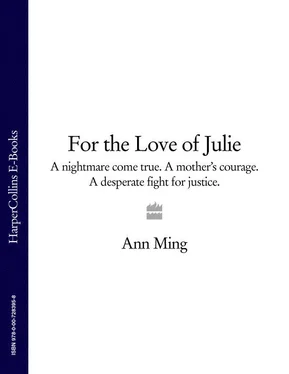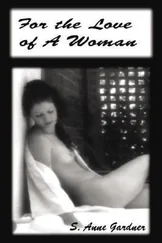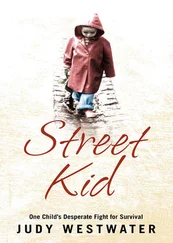Although I got on well with Mam and Dad, I became a bit of a rebel when I reached my teens, and I knew my own mind right from the start. I was never too bothered about conforming to other people’s ideas of what I should or shouldn’t do if it didn’t suit me. When it came to choosing the man I wanted to be with I certainly wasn’t going to take any notice of anyone else’s prejudices. By the time Mam found out about us I already knew Charlie was a good catch and I wasn’t going to give him up just to please her and a few neighbours who might disapprove of a mixed marriage. I didn’t argue with her all that much; I just took no notice of her dire warnings and carried on with my life as if she hadn’t said a thing.
‘Well, you might as well bring him home then,’ she huffed eventually, once she realized I wasn’t going to change my mind no matter how black a picture she painted of the future I was choosing, or how often she pointed out the danger I was putting myself in by consorting with a ‘foreign devil’.
Of course, the moment she met him Charlie worked the same gruff, twinkly charm on her that he had on me and a year later we got married, by which time Charlie was looking on her as a second mother and she couldn’t praise him highly enough. He was always happy to do any odd jobs she needed doing, he’d include her without being asked when we were going on holiday or for a day out somewhere, and I’d sometimes arrive at her house to find he’d popped in for a coffee and a chat with her.
‘I couldn’t wish for a better son-in-law,’ she would tell her friends at every opportunity, cutting off their prejudices before they could even leave their lips.
If I ever grumbled to her about anything Charlie had said or done she would immediately jump to his defence, making it clear she believed I was lucky to have landed such a good catch and that I should be grateful. Although it sometimes felt as though they were ganging up on me, I was relieved that we all got on well because if you can’t keep your immediate family together around you, what hope do you have of leading a truly happy life? I’ve always believed that immediate family is the most important thing for anyone. Perhaps knowing that I was adopted and feeling lucky at being taken in by two such loving parents had a big effect on my thinking, making me more appreciative than other people who might take such things for granted.
It was Charlie who wanted to get married and start a family quickly because he was already in his late thirties. He wanted to have children while he was still young enough to enjoy them and I was quite happy to go along with him, thinking there would be plenty of time for me to work and have a life of my own later, once the children were off at school and didn’t need me to be at home with them all the time.
We only had about twelve people at the wedding, which made it feel more like the Last Supper, because none of my other relatives were speaking to me, even though they knew Mam was now perfectly happy about the match. I wasn’t too bothered. If they felt like that I didn’t want anything to do with them anyway.
It wasn’t just the family who didn’t like the idea of a mixed marriage. When we bought our first house in Acklam, a nice area outside Middlesbrough, the next-door neighbour almost immediately got together a petition to persuade us to move straight back out again. The first I knew of it was when she turned up on the doorstep with a letter that she had persuaded five of the other neighbours to sign. It was a shock because I’d thought we were all getting on very well whenever we talked face to face.
‘I’ve noticed,’ she said, sounding a bit surprised, ‘how clean you are. We don’t mind you, but it’s when your husband’s friends come to visit that it lowers the tone of the area.’
Shocked, since I had always found Charlie’s friends very pleasant, I told Charlie I thought we should move after that, not wanting to live somewhere there was an atmosphere and where we weren’t wanted, but he wasn’t having any of it.
‘No.’ He was adamant. ‘We’re staying here.’
When I thought about it I realized he was right. Who was to say the next set of neighbours wouldn’t be even more hostile? We couldn’t allow them to bully us like that so we took the petition to show to a solicitor and asked his advice. He wrote to all the neighbours who had signed it, pointing out the error of their ways. I guess they hadn’t had their hearts in it – maybe they had just done it to please the woman next door – because they all apologized after that, even her. Perhaps they hadn’t expected us to respond in that way, assuming we would just pack up and scurry off into the night. Ordinary people were still easily intimidated by official-looking letters from lawyers. Like all potential bullies, their resolve crumbled as soon as they saw we were going to fight back and not simply do as they told us. So Charlie was right to stand up for himself because everything settled down after that and we went back to being normal neighbours.
The political atmosphere has changed so much since then. If someone got together a petition like that these days, I imagine it would be all over the front pages of the papers and there would be questions in Parliament. It was really just a question of sticking up for ourselves, something we would become very good at over the years.
In the end I got used to people who didn’t know him talking to Charlie in Pidgin English, as if he was just off the boat. I even managed to see the funny side sometimes. ‘What pricey you likey?’ someone at a cinema ticket desk would shout at him helpfully, and sometimes Charlie would play along with them, looking vacant as if he couldn’t understand a word they were saying. I couldn’t really be too indignant since I had made almost exactly the same mistake when I first met him.
We had our first child, Gary, in 1965, a couple of years after we married, by which time I’d just turned nineteen.
‘What colour’s Ann’s baby?’ our next-door neighbour asked Ellen, a friend of mine.
‘He’s green,’ Ellen replied, with a straight face.
Julie came along in 1967 and then Angela made her appearance in 1969. With three small children running around, the house was soon too small for us all and we put it up for sale. The woman who had organized the petition when we first moved in asked me how much we were asking for it.
‘That depends,’ I replied.
‘Depends on what?’
‘Depends on the colour of the buyer’s skin,’ I said. ‘The darker they are, the cheaper they can have the house.’
Although I was only joking we did end up selling to a man who had a half African wife, so that probably confirmed the neighbour’s worst fears about how the neighbourhood had now gone completely to pot. Times were changing in so many different ways.
Конец ознакомительного фрагмента.
Текст предоставлен ООО «ЛитРес».
Прочитайте эту книгу целиком, купив полную легальную версию на ЛитРес.
Безопасно оплатить книгу можно банковской картой Visa, MasterCard, Maestro, со счета мобильного телефона, с платежного терминала, в салоне МТС или Связной, через PayPal, WebMoney, Яндекс.Деньги, QIWI Кошелек, бонусными картами или другим удобным Вам способом.












